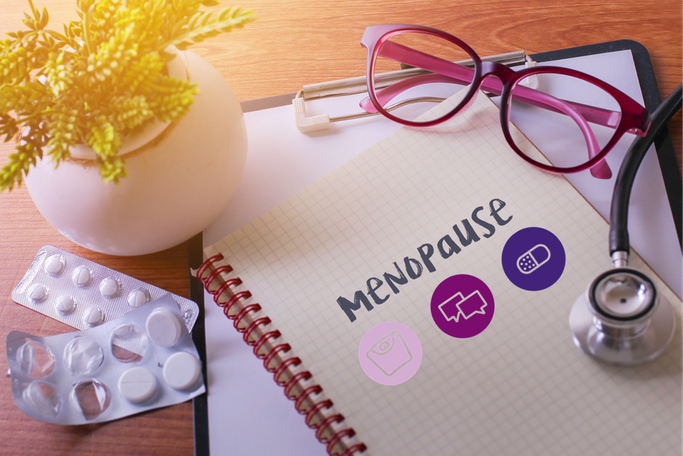
Let’s start this article by getting to know each other more. I’m your esteemed writer, aged 46, experiencing changes to my period, sometimes waking up in the middle of the night boiling hot and as such, have difficulty sleeping.
You, my dear reader, may be experiencing similar symptoms and/or may be considering producing ads in relation to the menopause.
Journey with me on this transition towards creating responsible ads.
“Broken sleep…brain fog…emotional… and I was frightened.”
(Davina McCall: Sex, Myths and The Menopause, Channel 4 documentary)
If you’d like to claim that your product can treat the symptoms of the menopause, these are likely to be regarded as medicinal in nature.
Medicinal claims can only be made for a medicinal product licensed by the Medicines and Healthcare Products Regulatory Agency (MHRA), for instance, or for a medical device (Rule 12.1). Claims must be backed by evidence.
In 2019, the ASA ruled against an ad which stated that a magnet product was “proven to reduce or completely eliminate menopause symptoms in over 71% of women”. Due to the lack of clinical evidence to support the claims, the ASA ruled that the ad was misleading (Ladycare Lifetime Ltd, 26 June 2019).
If you’re unsure of the likely classification of your product or whether any claims are likely to be considered as medicinal, you should consider seeking advice from the MHRA Borderlines team. Not least because, depending on the presentation of the product and its function, a seemingly non-medicinal product may sometimes meet the definition of a medicinal product, therefore triggering the need for a medicines licence.
“Physically, it's part of how we’re made; hormonally, it’s how we’re constructed; chemically, it’s how we work.”
(Kim Catrell, interview with Cosmopolitan, September 2014)
Whilst the menopause itself is not a medical condition, the ASA is likely to consider the symptoms of the menopause to be conditions for which medical supervision should be sought (rule 12.2).
Therefore, treatment claims for menopausal symptoms, such as those made in relation to therapies, should only relate to therapies which are carried out under the supervision of a suitably qualified health professional (Happy Homeopathy, 11 June 2014).
“I never used to weigh myself…”
(Michelle Obama, interview with People, November 2022)
Ads should otherwise be compliant with the remainder of the Code as applicable including, for instance, services related to weight control such as calorie-controlled diets and exercise plans.
Claims that a rate or amount of weight loss can be achieved within a specific period of time are not permitted, irrespective of the evidence held (Rule 13.9). In 2022, the ASA upheld complaints about claims about a diet and fitness plan including: “most women easily lose 5% of their body fat in the first 14 days. You can too”, “12 weeks to rapid fat loss in Menopause” and “drop up to 40 pound of fat in just 12 weeks” (Kim Constable Ltd, 5 October 2022).
"I am hot and hairy. It's like my last hurrah. Is it going to get better? Do I do HRT or do I have the … supplement…?”
(Zoe Ball, speaking at Sarah Millican’s Standard Issue in Conversation event, London, May 2017)
The ASA understands that there is an established weight of scientific evidence that hormone replacement therapy (HRT), including bio-identical HRT, is effective in treating symptoms of the menopause – although you should, of course, be mindful not to promote any prescription only medicines to the public.
With respect to “compounded” HRT (involving bespoke treatments) the ASA and CAP have not yet seen evidence to support implied claims about its effectiveness or that “compounded” is more effective than “uncompounded” HRT (treatments which are not individualised). As such, claims like “we can tailor the treatment to your specific needs” are unlikely to be acceptable (Stratford Dermatherapy Clinic, 6 September 2017).
Food supplements which are offered as nutritional support for women during the menopause may only make health claims listed as authorised in the GB NHC Register.
In 2021, the ASA ruled against an ad which stated that “Mother, 52 who was left exhausted by severe menopausal symptoms claims a ‘super supplement’ made her feel better in a WEEK”. (Lyma Life Ltd, Sept 2021). The ASA considered this was a (specific) health claim for the purposes of the Code because it implied the food supplement provided the beneficial health effects of helping with symptoms of menopause. Because the ASA had not seen evidence that demonstrated the claim was authorised on the GB Register, the complaint was upheld on that basis.
Need more advice?
If you’d like some further advice on please see our guidance, and if you need bespoke advice on your non-broadcast ads, our Copy Advice team are here to help.
More on
-
Keep up to date
Sign up to our rulings, newsletters and emargoed access for Press. Subscribe now.


